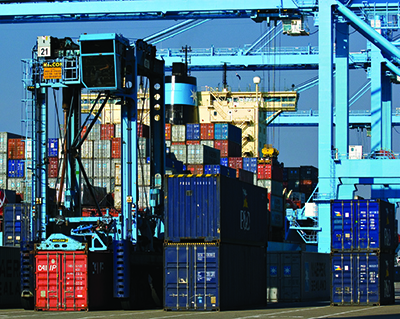
Commenting on the first of what is likely to be a number of papers issued by the UK government over the next few days outlining its ambitions for Brexit, the UK trade association that represents freight forwarding and logistics companies says that it is no surprise that the paper is all about possible trade and customs arrangements post-Brexit.
British International Freight Association (BIFA) Director General, Robert Keen says that this focus shows how important the subject is to the UK government’s Brexit negotiations.
“Having read and digested the paper thoroughly, BIFA believes it shows for the first time that there now appears to be a united position in the Cabinet in favour of a more businesslike approach to Brexit and the need to facilitate trade with the EU.
“BIFA policy ever since the 2016 Referendum has favoured retaining something as close to the Single Market as possible. In reality, certainly since the 2017 General Election, this has meant remaining in the Customs Union or something as close to it as possible, preferably in the long run but certainly during any implementation period, after the UK leaves the EU.
“That message has been central to the many discussions that BIFA has had with those in Government and we welcome the fact that the document acknowledges the work put in by ourselves and other trade associations to help increase awareness of the issues and potential impact of the introduction of tariff and non-tariff barriers.”
The document outlines two basic options for the future EU-UK customs arrangements. One that is highly streamlined, keeping the additional requirements for EU-UK trade to a minimum, but which from reading the document does imply that some form of customs declaration will be required.
The second, which is more closely aligned to BIFA’s current policy proposes a new customs partnership with the EU, which is very radical and has not been tried before. This would remove the need for customs processes at the border, although there would be a need to align UK and EU customs procedures. Keen adds: “The second option would certainly resolve the Dover Straits issue, as well as that of Northern/Southern Ireland trade.
“Unfortunately, what the paper cannot address is the fact that, so far, the EU has made clear it will not discuss Britain’s future trading relationship – including customs arrangements – until it has reached agreement on several key issues, including the terms of the financial payments Britain will make on exit, the rights of citizens, and the future status of the border in Northern Ireland.
“To accommodate any of the proposals laid out in today’s paper, EU negotiators would have to change that stance and it will be interesting to see if that happens, or whether those on the EU side of negotiations determine that the UK is trying to have its cake and eat it.
“Commentators suggest that in seeking a customs union agreement that will keep things broadly the same for an interim period, the UK government is attempting to reassure UK businesses that undertake visible trade with Europe.
“As always, the devil is in the detail. BIFA will continue to work with government to find out more details on how today’s proposals will avoid the imposition of tariffs, border checks, Customs declarations and bureaucracy for UK businesses trading within the EU, as well as BIFA members, which provide the logistics services that underpin the UK’s visible trade.”